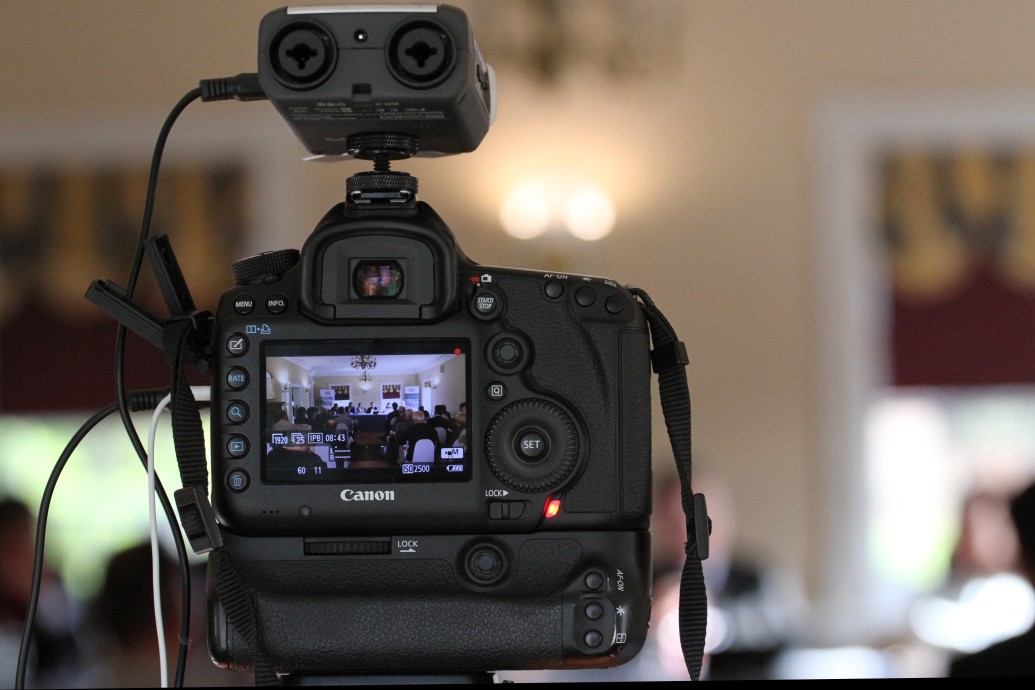Livestreaming is one of the hottest new event techs — and one of the most misunderstood. You may have heard rumours that livestreaming is absurdly expensive, or will reduce attendance, or is only relevant for massive events like Coachella or Dreamforce. Is there any truth to this, or should all event organisers be paying more attention to livestreaming?
With platforms like Facebook Live and Periscope on the rise, it’s more important than ever to understand how video could play a role at your event. Here are five common myths about livestreaming your event — debunked.
1. Livestreaming only makes sense for massive events
You don’t have to host an event the size of Coachella (which attracted 9 million livestream views in 2016) for live video to improve your event. Live video is actually a worthy investment for many types and sizes of events — including small concerts or business events.
If your event is at capacity, live video is a great way to expand the event (and your brand) beyond the room. In 2015, Salesforce’s Dreamforce Conference reached 75x the number of people who attended in person via video. With 160,000 registered attendees, that means they reached 12 million individuals via video — individuals who are now more likely to attend the next conference in person. In fact, livestreaming might be most appealing to small events with an attendance cap, so you can maintain an intimate experience while reaching a broad audience.
2. Livestreaming will decrease in-person attendance
This fear makes sense: if someone could stay at home and watch your event, why would they buy tickets and make the effort to show up? You may be surprised to learn that livestreaming may actually grow your event’s attendance.
According to Digitell, 30% of people who watch a livestream of an event will attend the same event in person the following year. Large events like Coachella have seen this in action. Coachella sold out in 3 days in 2011, before they started livestreaming their festival. In 2012, after livestreaming the previous year’s festival through YouTube, the festival sold out in just three hours.
3. Live video is too expensive
Contrary to popular belief, livestreaming doesn’t have to be expensive. There are lots of options for those on a budget, from using Facebook Live on your phone to buying an inexpensive live camera like Mevo for around $400.
Even if you do splurge a bit on your livestream, chances are it will return more than you spend. Besides the increase in ticket sales you can expect the next year, there are more ways live video can drive ROI. According to Hubspot, 52% of marketers worldwide named video as the content type with the best ROI.
4. No one will watch your livestream
It can be scary to think about investing money and time in a video that no one will watch. However, assuming you have an audience on social media, this is unlikely.
According to Facebook Live, users watch live video 3x longer and comment 10x more than recorded footage. Considering that posts that include video already receive a higher engagement than text-based content, this is a huge increase.
There are also creative strategies to increase views of your video, including focusing on elements of your event beyond the speakers or performers. You can film behind-the-scenes video for loyal fans, influencer partnerships featuring a guest speaker, and special announcements or Q&As. This way, the people at the event will also be motivated to participate in these exclusive videos.
5. After the event, the value of your live video disappears
The best part about live video? After you finish the livestream, you can take all the footage and repurpose it for different marketing materials. You can use the footage to create teaser videos for future events and to engage followers on social media year-round.
According to Unruly, enjoyment of recorded video still increases purchase intent by 97% and brand association by 139%. That’s a valuable opportunity to sell more tickets and increase loyalty among attendees.
Now that you know the many benefits of live video, it’s time to figure out how to do it:

Leave Your Comment Here